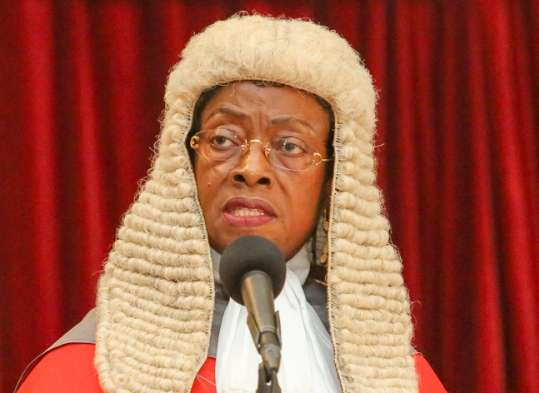
Certainly, CJ’s commission should work with dispatch
Ghana has seen a high level of stability since the return to constitutional rule in 1993, with four smooth transitions, all to the admiration and envy of many countries especially in Africa. Indeed, the country has been a good example to others and many political experts point to Ghana as a classic and promising democracy in Africa.
The successes we have chalked up can be attributed to the people’s understanding of the benefits of democracy, the organisation of political bodies and, above all, the supervisory role of the Electoral Commission(EC), the body set up by law to oversee elections in the country.
The work of the EC, which was established by the Electoral Commission Act (Act 451) of 1993, is a very sensitive one, since no multi-party democracy can function if the body set up to oversee elections does not exhibit independence and reliability.
Without doubt, national and district assembly elections that the EC had conducted in the past had had many challenges, but they eventually gave us results that were accepted by the political parties, the only exception being the 2012 presidential election whose results had to be upheld by the Supreme Court.
Above all, the Daily Graphic believes that the EC has so far conducted itself creditably in the supervision of Ghana’s elections.
That is why we were worried when a series of allegations and counter-allegations were levelled against the EC Chair and the top brass at the commission.
Thankfully, when the President was petitioned, he did not sit on the petitions and swiftly referred them to the Chief Justice, who has instituted a probe into the allegations to unearth the truth in them.
One of the many challenges the EC has faced over the years is a flexible timetable for the conduct of elections. We recall that before the 2016 elections, it struggled so much for time, dealing with court issues and the cleaning and exhibition of the voters register, that many thought the elections could not be conducted.
We are barely three years into the next elections, which are scheduled to be held in the first week of December 2020, and the EC needs to be planning towards that.
One of the significant things that will happen in those elections is the implementation of the ruling by the High Court for the EC to roll out a programme to bring into reality the Representation of the People’s Amendment Law (ROPAL), (Act 699) that will allow Ghanaians in the Diaspora to vote during national elections.
With the current probe of the top hierarchy of the EC, the commission will surely have challenges meeting the terms set out by the High Court for it to roll out a programme for the implementation of ROPAL within one year if the work of the CJ’s commission takes longer to complete.
It is in this vein that the Daily Graphic sees the call by Parliament on the Chief Justice to expedite the probe as timely. A speedy resolution of the matter will ensure that the EC will maintain its credibility, which has no doubt been shaken as a result of the accusation and counter-accusations.
We have come so far in our democratic journey and every effort should be made to consolidate it.
